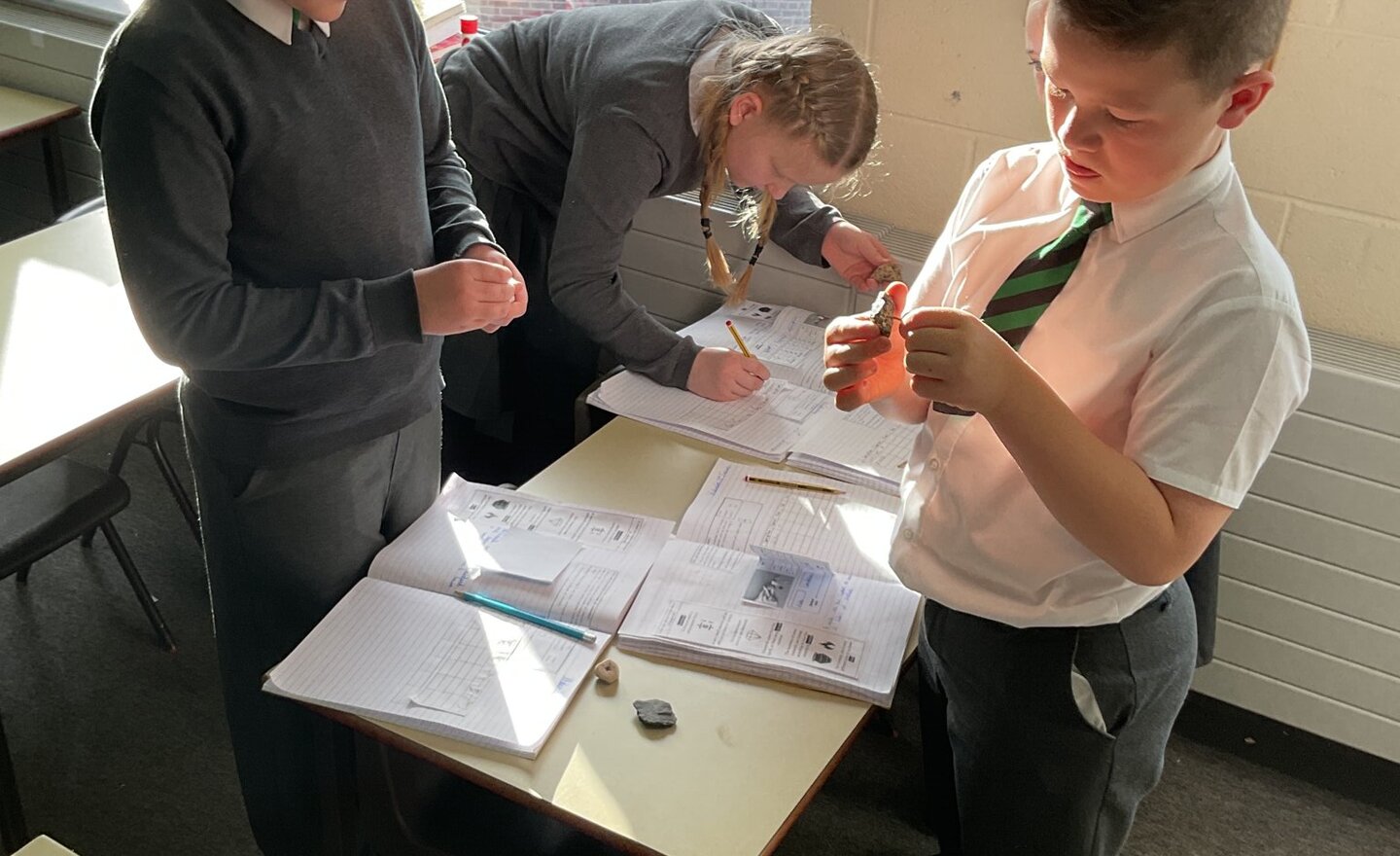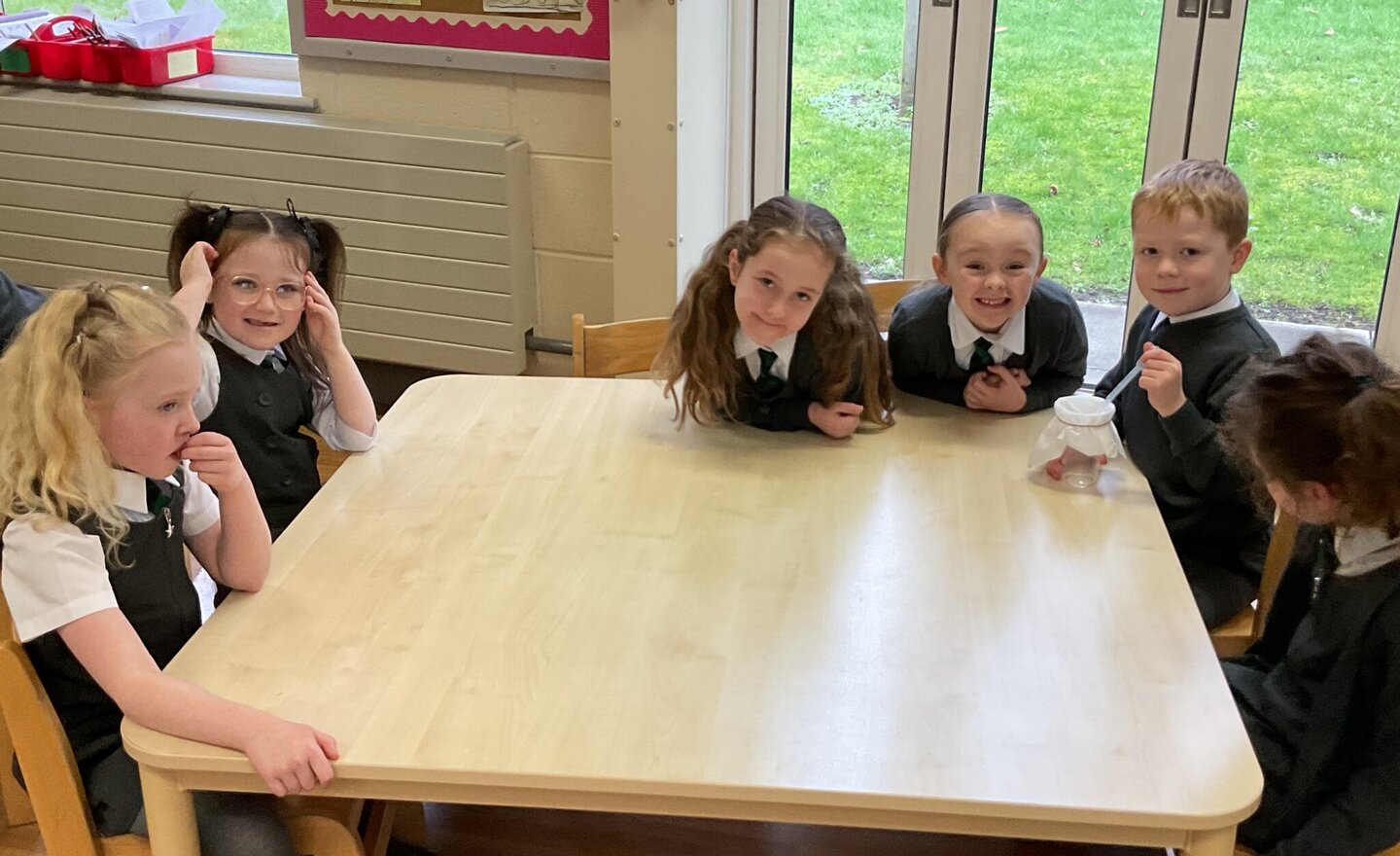“The important thing is to never stop questioning.”
- Albert Einstein
Our Goal
At English Martyrs Catholic Primary School, we encourage curiosity in our students about the world around them. Our Science curriculum helps children respect both living and non-living things while gaining knowledge, skills, and positive attitudes. Students will build and develop key knowledge identified for each year group, following the national curriculum and progressing through planned phases. Key skills are also developed systematically to meet national expectations.
We design our curriculum to ensure children learn scientific concepts through hands-on experiences like experiments and using equipment. We make sure to include experts and scientific places of interest to enhance learning outside the classroom. Cross-curricular links are also planned to make learning relevant. We nurture a love of science by encouraging children to ask questions and explore their surroundings.
How We Teach Science
Teachers create a positive environment for science learning, expecting all pupils to achieve high standards.
- Review and Build: Each new unit starts with a recap of related knowledge from previous years, helping children connect new information with what they’ve already learned. We introduce key vocabulary with definitions and visuals to ensure understanding.
- Assessing Knowledge: At the start of each topic, we assess what children already know to inform our planning. This process is documented in their Science books. At the end, children revisit the topic to see what they have learned, allowing teachers to reinforce any key knowledge that isn’t secure.
- Problem Solving: We incorporate problem-solving opportunities in our lessons. Children ask questions and use their scientific skills to find answers, fostering curiosity.
- Engaging Lessons: Teachers plan engaging lessons with high-quality resources, using precise questioning and regular assessments to ensure all pupils progress. Tasks are designed to challenge all learners and support inclusion.
We ensure skills and knowledge build progressively each year. As children’s understanding grows, they become more proficient in using scientific equipment, interpreting results, and drawing evidence-based conclusions. A ‘Knowledge and Understanding’ sheet in their Science books outlines the topics covered each year.
Working Scientifically
We integrate 'Working Scientifically' skills into lessons, developing these skills systematically over time. New vocabulary and concepts are introduced through direct teaching. A ‘Working Scientifically Butterfly’ in each pupil’s book helps monitor skill coverage.
Special Events
Events like British Science Week and Mars Day provide off-timetable learning, involving families and the community, to broaden science education and apply knowledge and skills.
Impact
Our approach ensures a fun, engaging, and high-quality science education, giving children a strong foundation to understand the world. By engaging with the local environment, children learn through varied, firsthand experiences. Workshops, trips, and expert interactions show children how science changes lives and its importance for the future.
Children learn about science careers through community links and national agencies, working with professionals and positive role models from various backgrounds. This exposure helps all children feel they can be scientists and achieve in the field.
Children at English Martyrs enjoy science, becoming motivated learners with a solid scientific understanding. Our science provision is recognized by the ‘Primary Science Quality Mark’ at ‘Gilt’ level.
Related Blog Posts
Which materials are soluble?
This week, we investigated which materials are soluble.
Use a range of different materials, we observed what happened when they were added to water.
George 5A, ‘I liked seeing how the different materials reacted when added to the water especially the oil when it sat on top.’
How do we test the hardness of materials?
Today we explored the hardness of materials are there everyday use in life.
Working in groups, we examined which rocks could be scratched by different objects and then explained which would be suitable to use for different purposes.
As a class, we identified that granite and marble are…
Year 1- Science-Materials
Year 1-Science- Which materials are waterproof and which are not?
We have been looking at different materials this afternoon to see which ones are waterproof and not. “It’s making a hole” “the water is coming through the paper.” We looked at the following materials to carry out our experiment-…
.jpg)
.jpg)
.jpg)
.jpg)
.jpeg)

